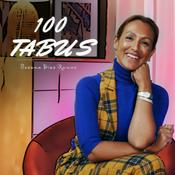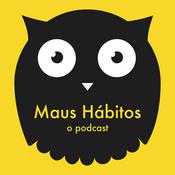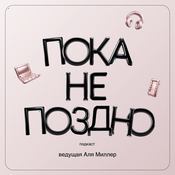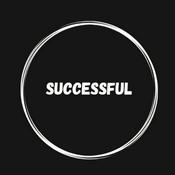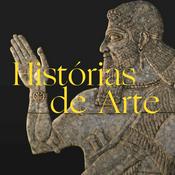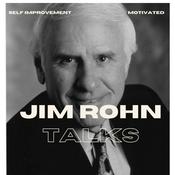1151 episódios
- The awkward silence at work when everyone knows a project is going off the rails.
The simmering resentment in a marriage over an issue neither spouse will confront.
The dysfunction in a church where certain topics are understood to be off-limits.
My guest, Joseph Grenny, says that some of the biggest problems in every organization, from businesses to families, aren't the issues themselves, but people's inability to talk about them. Joseph is a business social scientist and consultant, and the co-author of the bestselling book Crucial Conversations. For decades, he’s studied why people shut down or blow up when the stakes are high, emotions are strong, and opinions differ.
Today on the show, we talk about what makes a conversation “crucial,” why our brains betray us in conflict, and how to escape the false choice between maintaining a relationship and speaking honestly. From figuring out what kind of conversation you need to have, to creating the right conditions for connection, to dealing with criticism, we unpack how to have the conversations you’ve been avoiding — at work, at home, and everywhere else.
Connect With Joseph Grenny
Crucial Learning website
Joseph on LinkedIn
See Privacy Policy at https://art19.com/privacy and California Privacy Notice at https://art19.com/privacy#do-not-sell-my-info. - Of all the books in the Bible, Ecclesiastes is arguably the most philosophical. Dark, experiential, existential, and unsparingly honest about the human condition, it wrestles with work, money, ambition, pleasure, time, and death — and it does so in a way that feels uncannily modern. Whether you approach it as sacred scripture or simply as ancient wisdom literature, Ecclesiastes has something to say to anyone who’s ever chased success, gotten what they wanted, and then wondered, Is this really it?
Here to unpack this ancient philosophy is Bobby Jamieson, a pastor and the author of Everything Is Never Enough: Ecclesiastes’ Surprising Path to Resilient Happiness. We discuss why Ecclesiastes resonates so strongly in our age of acceleration and control, why so much of life can feel absurd and unsatisfying, and how the book ultimately shows us how to enjoy — and even embrace — what first appears to be vanity of vanities.
Resources Related to the Podcast
AoM Podcast #956: Feeling Depressed and Discombobulated? Social Acceleration May Be to Blame
Dying Breed Article: Resonance as an Antidote to Social Acceleration
AoM Podcast #1,100: Money and Meaning — What Faith Traditions Teach Us About Personal Finance
The Uncontrollability of the World by Hartmut Rosa
Jerry Seinfeld on saving time
Connect with Bobby Jamieson
Bobby on X
Thanks to Today's Sponsor
Surfshark. Go to https://surfshark.com/manliness or use code MANLINESS at checkout to get 4 extra months of Surfshark VPN!
See Privacy Policy at https://art19.com/privacy and California Privacy Notice at https://art19.com/privacy#do-not-sell-my-info. - Not long ago, the primary concern people had about boys was that they were wild, impulsive, and out of control — getting into fights, pushing limits, and stirring up trouble. Today, the problem has flipped. The more common challenge isn’t reckless behavior, but inert passivity. More and more young men are anxious, apathetic, socially isolated, and seemingly uninterested in doing much of anything at all.
Vince Benevento, the founder of Causeway Collaborative — a male-specific counseling center — and the author of Boys Will Be Men: 8 Lessons for the Lost American Male, has spent nearly two decades working on the front lines of this shift. As a therapist, coach, and mentor who specializes in helping young men between the ages of 14 and 30, Vince has worked with both the combustible and the checked-out and developed a clear, experience-honed framework for what actually helps guys get unstuck, take ownership of their lives, and move forward with purpose.
In today’s conversation, we unpack what Vince has learned through years of work with boys and men, and how his approach — which is rooted more in action than in talk — can be applied not just in the therapist’s office, but by parents and mentors. We dig into why traditional therapy often fails young men, and how to give them the drive, accountability, and sense of connection they crave. We discuss the importance of teaching young men to build life “brick by brick” and helping them find their wild, their thing, and a good group of friends.
Resources Related to the Podcast
AoM Podcast #810: How to Turn a Boy Into a Man
AoM Podcast #926: The 5 Shifts of Manhood
AoM Podcast #1,028: The 5 Marks of a Man
AoM Podcast #886: What the World of Psychology Gets Wrong About Men
AoM Article: Get Your Son Out of His Bedroom
AoM Article: How Labeling Your Emotions Can Help You Take Control
See Privacy Policy at https://art19.com/privacy and California Privacy Notice at https://art19.com/privacy#do-not-sell-my-info. - We’ve all had that feeling — you meet someone new, and the conversation just flows. You’re in sync. You click. But what’s really happening when that magic occurs?
My guest today is journalist Kate Murphy, author of Why We Click: The Emerging Science of Interpersonal Synchrony, and she says this experience isn’t just a vibe, it’s a measurable physiological phenomenon and the most consequential social dynamic most people have never heard of. In our conversation, we dig into what happens when people click, why syncing with others feels so good, and how it influences everything from friendships to teamwork to romantic relationships. We also talk about why some people have a knack for connection, how you can become more “clickable,” and why video calls are the worst.
Resources Related to the Podcast
Dying Breed article: Resonance as an Antidote to Social Acceleration
Kate's previous book: You're Not Listening
Sunday Firesides: Be Someone's Atmospheric Getaway
AoM Article: The Importance of Eye Contact
See Privacy Policy at https://art19.com/privacy and California Privacy Notice at https://art19.com/privacy#do-not-sell-my-info. - American football is so big — so braided into our weekends, our language, and our culture — that it can be hard to see it clearly as a whole.
In his new book, Football, Chuck Klosterman helps us see the game from unexpected angles, and argues that football isn’t just a sport, it’s a kind of national operating system. Chuck explains how it became the dominant televised spectacle in America, despite having elements that should count against it. We then explore football as a simulation — of war, of reality, and even of itself — and how its simulation through video games has actually fed back into the sport itself. We also talk about who Chuck thinks is the GOAT (hint: it's not Tom Brady), and the difference between achievement and greatness. At the end of our conversation, Chuck lays out a compelling argument for why football may be headed for a steep and surprising fall.
Resources Related to the Podcast
AoM Podcast #248: Why Football Matters
AoM Podcast #1,061: Are You Not Entertained? The Myths and Truths About Roman Gladiators
AoM Podcast #1,044: What Sports Betting Is Really Doing to Players, Games, and Fans
Thanks to This Week's Podcast Sponsor
Incogni. Take your personal data back with Incogni! Use code MANLINESS at the link below and get 60% off an annual plan: https://incogni.com/manliness
See Privacy Policy at https://art19.com/privacy and California Privacy Notice at https://art19.com/privacy#do-not-sell-my-info.
Mais podcasts de Ensino
Podcasts em tendência em Ensino
Sobre The Art of Manliness
The Art of Manliness Podcast aims to deepen and improve every area of a man's life, from fitness and philosophy, to relationships and productivity. Engaging and edifying interviews with some of the world's most interesting doers and thinkers drop the fluff and filler to glean guests' very best, potentially life-changing, insights.
Sítio Web de podcastOuve The Art of Manliness, Learning English Conversations e muitos outros podcasts de todo o mundo com a aplicação radio.pt
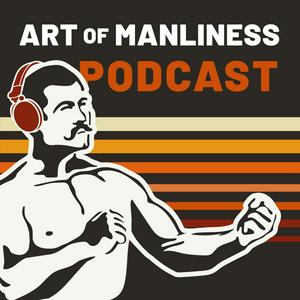
Obtenha a aplicação gratuita radio.pt
- Guardar rádios e podcasts favoritos
- Transmissão via Wi-Fi ou Bluetooth
- Carplay & Android Audo compatìvel
- E ainda mais funções
Obtenha a aplicação gratuita radio.pt
- Guardar rádios e podcasts favoritos
- Transmissão via Wi-Fi ou Bluetooth
- Carplay & Android Audo compatìvel
- E ainda mais funções


The Art of Manliness
Leia o código,
descarregue a aplicação,
ouça.
descarregue a aplicação,
ouça.




